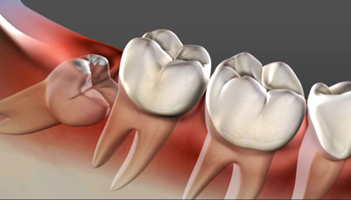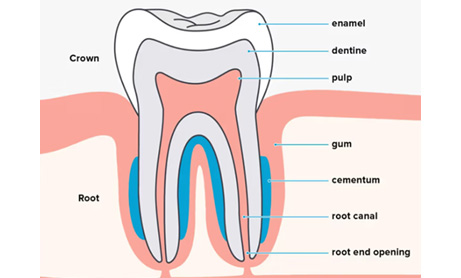
Teeth whitening or teeth bleaching, is a popular cosmetic dental procedure aimed at lightening the shade of teeth. It is an excellent way to instantly brighten your smile and renew your confidence. This article talks about safe ways to whiten your teeth.
What is teeth whitening?
Teeth whitening, as the name suggests is a procedure done to lighten the shade of the teeth. It involves using peroxide based bleaching agents in a controlled manner to remove the discolouration of enamel.
How does it work?
Similar to the skin which appears continuous, but is actually permeable, our teeth are porous too. Over time, the stains in the food that we consume seep in through these pores giving the teeth a yellowish appearance. The medicine in the whitening gels helps to release the trapped stains to help bring the tooth back to its original shade. Think of it as a deep cleaning for your teeth.
Benefits of teeth whitening
- Teeth whitening cleans your teeth from within.
- A bright smile is a symbol of health and vitality.
- A brighter smile can boost self-esteem and confidence.
- A lighter shade of teeth is associated with younger age. Thus, teeth whitening helps you to get a more youthful appearance.
Before whitening
It is advisable to get a dental check up and consultation done before whitening. The dentist will advise you if any treatment is required prior to bleaching to ensure minimal discomfort and optimal results.
Whitening procedure
There are two ways to whiten your teeth: in-office bleaching or home bleaching.
Office-bleaching:
This is done by a dentist in the clinic. The dentist will begin by cleaning and polishing the teeth surfaces. A special guard will then be applied on the gums to protect them. The bleaching gel is then applied to cover all the teeth visible during smiling. The gel is left on the teeth for 8 to 20 minutes, depending upon the brand. Sometimes, a special light is used to enhance the effect of the bleaching gel. At the end of the cycle, the gel is washed away. A repeat cycle can be done if desired. Most in-office whitening requires one to three cycles. The whole procedure is completed in a single visit within an hour.
Home-bleaching:
This is done by the patient at home. This involves placing the bleaching gel in customised bleaching trays and wearing them for a specified amount of time over one or two weeks. These are clear silicone trays that have a built-in window to house the gel. They are custom fabricated in the laboratory. The dentist will take a mould of your teeth and send it to the lab to make the trays. You can collect them once ready in 2 to 3 days. Home bleaching kits are available online or you can ask your dentist to procure it for you. Home bleaching agents are mild, hence take longer to produce the desired results. Whitening pens and strips are also available, though their effect is less pronounced than the tray method.
Comparison between home and office bleaching
Consideration | Home whitening | In-Office whitening |
Time | One to two weeks | One hour |
Post treatment sensitivity | Little to none | Mild |
Results | Slow | Instant |
Whitening efficacy | Decent | Excellent |
Convenience | Less convenient | Very convenient |
After care
- Avoid consuming any food or beverage that has pigments in it for 48 hours. This includes tea, coffee, wine, store bought juices and sodas, beetroot, turmeric, red chilli, store bought sauces, and any preparation with added food colour. Abstain from smoking and chewing paan (betel nut leaf quid). Fruits, nuts, rice, quinoa, oats, bhaakri, roti, bread, idli, dosa, upma, curd, cheese, buttermilk etc., can be eaten immediately.
- Avoid extremes – extreme hot, cold, sweet our sour food for 2 days post bleaching.
- Brush gently using a mild toothpaste and soft brush.
- Use a desensitising paste or gel in case of sensitivity
- Use a remineralising agent for a week.
FAQS
How white will my teeth get after bleaching?
You can expect your teeth to get 2 to 8 shades lighter.
Is it harmful?
No, whitening does not harm or weaken the tooth if done using standard bleaching agents.
How long does it last?
The effect of whitening lasts for 6 months to two years depending upon your diet and oral hygiene maintenance.
Are there any side effects?
Some patients may experience mild sensitivity after whitening. This usually settles in two days. Anti-sensitivity pastes can be used to give relief. Most in-office whitening gels have an anti-sensitivity agent incorporated in them.
When to not bleach?
If you have broken or chipped teeth, sensitivity, caps or veneers in your front teeth, then some additional measures need to be undertaken before bleaching.
What about home remedies or whitening toothpastes?
Home remedies such as rubbing your teeth with salt and lemon or applying baking soda are extremely harmful. They weaken your enamel making teeth more susceptible to cavities. Whitening toothpastes too contain abrasive agents that strip away a layer of your enamel.
Summary
Professional teeth whitening is an excellent way to instantly brighten your smile and add some cheer to your personality. It is quick, effective and painless. Get a dazzling white smile today!









